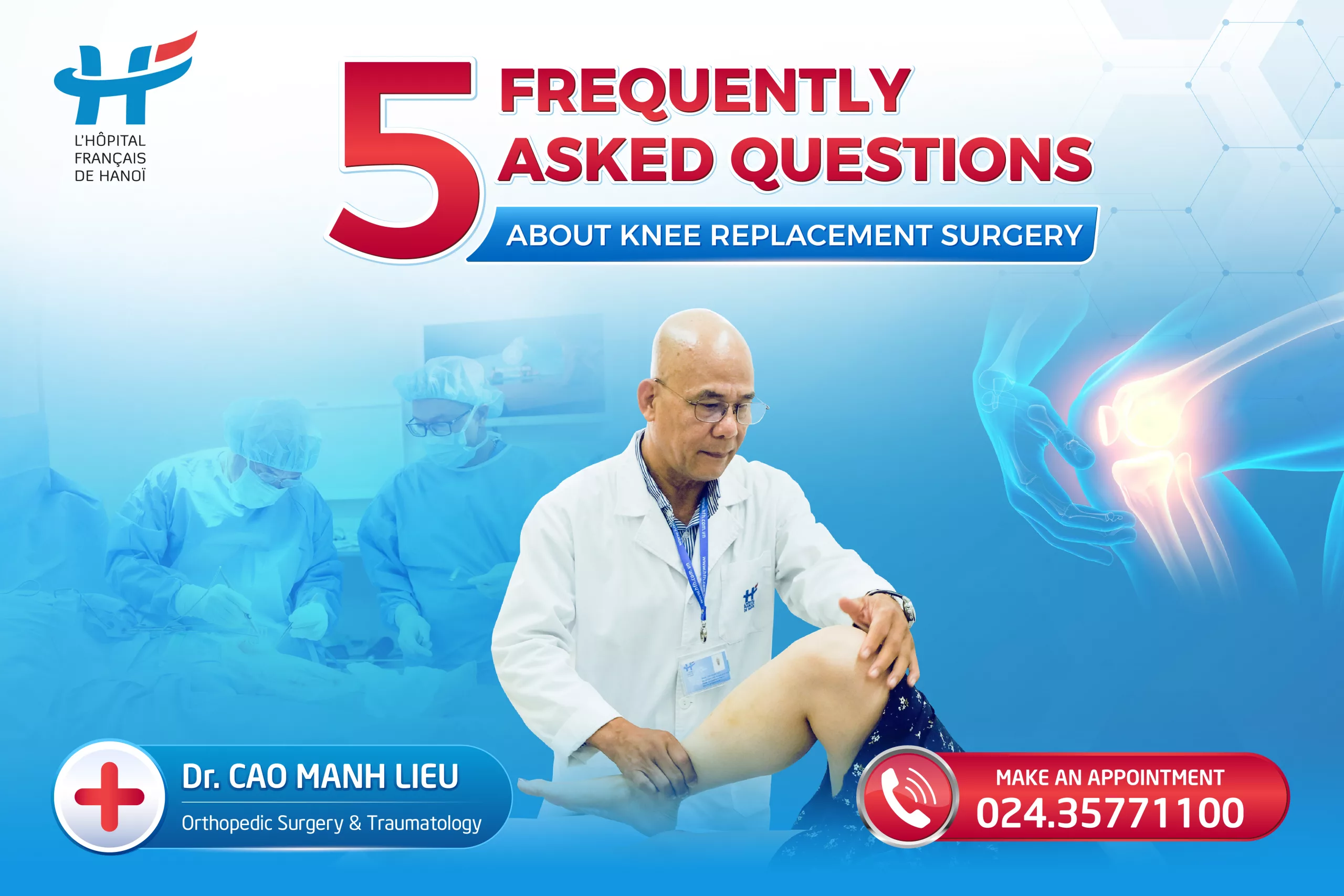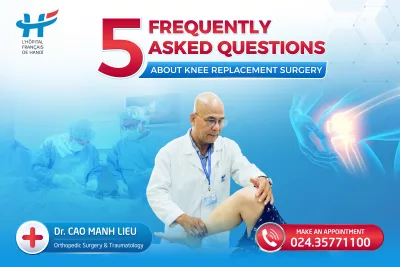However, before making the decision to undergo surgery, you may have many questions. Below are 5 of the most frequently asked questions received by orthopedic specialists – along with HFH’s expert’s answers from Dr. Cao Manh Lieu, Department of Orthopedic Surgery and Traumatology, Hanoi French Hospital:
1. What materials are used in an artificial knee joint?
An artificial knee joint typically consists of two main components made of metal and medical-grade plastic (biopolymer).
- The metal component is usually made from inert metals like titanium, cobalt, or chromium. These materials bond well with bone and do not cause irritation or allergic reactions. This component is attached to the femur and tibia after the damaged bone and cartilage have been removed.
- The plastic component is made of high-density polyethylene and functions as a cushion between the metal parts. It replaces the natural joint space, allowing the knee to move smoothly and reducing friction. This plastic insert acts like a shock absorber, helping the joint to move more comfortably post-surgery.
2. How durable is a knee implant?
Modern knee prostheses are highly durable. On average, they last over 20 years, and possibly longer with proper use. The lifespan of the joint also depends on factors such as the type of implant, material quality, and surgical technique.
Doctors will recommend the most suitable type of implant based on your age, lifestyle, activity level, and medical condition to ensure long-term effectiveness.
3. Is knee replacement surgery painful?
During the surgery, patients are given spinal anesthesia or general anesthesia, so they do not feel pain. After surgery, various pain management methods are used to help you control discomfort and support a faster recovery.
Most patients are able to sit up and begin walking with assistance (using a walker) within 2–3 days, are discharged after 5–7 days, and can return to nearly normal daily activities within 6–8 weeks, depending on their condition. Full recovery may take a few months, but the improvement in quality of life is typically significant.
4. What can help speed up knee recovery?
After surgery, Rehabilitation and Physiotherapy specialists will guide you through specific exercises to help your body adapt to the new joint, improve your strength and mobility, and shorten your recovery period.
5. Will movement be limited after knee replacement?
The primary goal of knee replacement is to relieve pain caused by osteoarthritis and restore easier, more comfortable movement. After recovery, you can resume daily activities such as walking, climbing stairs, cycling, and swimming. However, you should avoid high-impact sports that involve strong joint impact or twisting motions.
Knee replacement is more technically challenging than some other types of joint replacement because it alters the knee’s natural biomechanics, which can affect post-operative outcomes.
At Hanoi French Hospital (HFH), total knee replacement is performed by an experienced team of orthopedic surgeons, supported by modern medical equipment that meets international standards. Patients are closely monitored throughout their recovery thanks to the strong collaboration between orthopedic surgeons and physiotherapists.
HFH’s fully equipped rehabilitation facility ensures patients can begin guided exercises early and correctly – leading to a shorter recovery time and better post-operative outcomes.
To book an appointment with our specialists, please contact our hotline at 024.35771100, message us via our “Hanoi French Hospital” Facebook fanpage, or reach out on Zalo at zalo.me/2008009049335817955.


